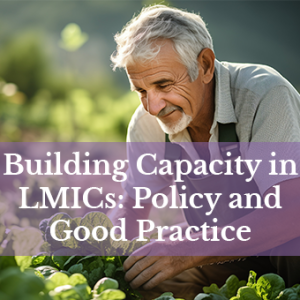Presenter(s):
Iraguha Moses, Center for Aging in Uganda, Kisoro District Hospital, Kisoro, Uganda, Uganda
Abstract
Uganda, along with all of Africa and the rest of the developing world, is aging rapidly. Countries with developing economies lack the resources, personnel, and in some cases the motivation to provide adequate health care and social services to older adults. This study examined the feasibility of utilizing Village Health Workers (VHWs) to deliver low-cost interventions aimed at improving health and quality of life for older adults living in rural villages. The VHWS of Kisoro District, who had been previously trained to deliver preventive, clinical, and educational services to younger adults and children, received additional training aimed at older adults. They learned to conduct screenings and to provide interventions addressing common problems related to vision, hearing, mobility, pain, depression, and lack of household energy.
After a 7-year period, 4,876 older adults out of a population of 5097 had been screened and received the following interventions: vision, 3,832 screened, 2,673 received reading glasses; hearing, 2,240 screened, 93 received listening devices, 2,152 had cerumen removed; mobility and pain, 4,876 screened, 695 received canes, 645 treated with acupuncture, and 4729 received ongoing paracetamol; depression, 69 enrolled in depression support groups; 1746 received solar light units. Older adults reported improvements in their ability to read, sew, prepare food, sort crops, and perform personal care; improved hearing; better mobility on rocky and hilly terrain without falling; improved pain allowing continued performance in farming, daily activities, and family commitments; improved mood and reduced social isolation; and great satisfaction with having light at night, which brought in other family members, thereby reducing social isolation. Solar lights also reduced the use of kerosene candles, thereby reducing the risk of house fires and respiratory diseases.
VHWs have been involved, since the inception of the Doctors for Global Health Uganda program in 2007, in the monitoring and treatment of chronic diseases in the community, through the Chronic Disease in the Community (CDCom) Program. After a rigorous training period of 6 days/month for 1-2 years, they were certified to render care in six domains of health, including monitoring and providing medication for hypertension, diabetes, and other non-communicable diseases. They are supervised by a team of six clinical supervisors from Kisoro District Hospital. The majority of adults followed by CDCom are older adults.
VHWs also conduct regular home follow-up visits for solitary, at-risk older adults, thereby improving their safety and well-being.
In a new initiative aimed at improving nutrition, VHWs teach older adults, working alongside younger helpers, to plant enhanced home gardens, utilizing sustainable agriculture techniques. The gardens will improve nutrition for the whole family, grow extra produce to generate household income, and help to mitigate climate change.
This study demonstrates the feasibility of utilizing VHWs to deliver interventions that positively affect health and quality of life, at low cost. It provides a model for community-based geriatric support for developing economies facing the challenge of rapidly growing populations of older adults, and can be adapted to local needs, economic conditions, and available personnel.
Bio(s):
Iraguha Moses is the Director of the Kisoro Elders Project at Kisoro District Hospital in Kisoro, Uganda. He is graduated from Uganda Christian University in 2011 with a Bachelor’s Degree in Social Work and Social Administration, and also obtained a Certificate in Administrative Law from the Uganda Law Development Center in 2011. He has completed all of the requirements for a Master’s degree in Social Work with specialization in Geriatric Social Work from Uganda Christian University. Since 2018, as Director of the Kisoro Elders Project, he has been training and supervising Village Health Workers in the aspects of their roles which provide screening and low-cost interventions for common problems of aging for older adults living in extreme poverty in rural villages of Kisoro District. In 2024 he also assumed the role of Director of The Center for Aging in Uganda (aginginuganda.org). He is married and has two children.

